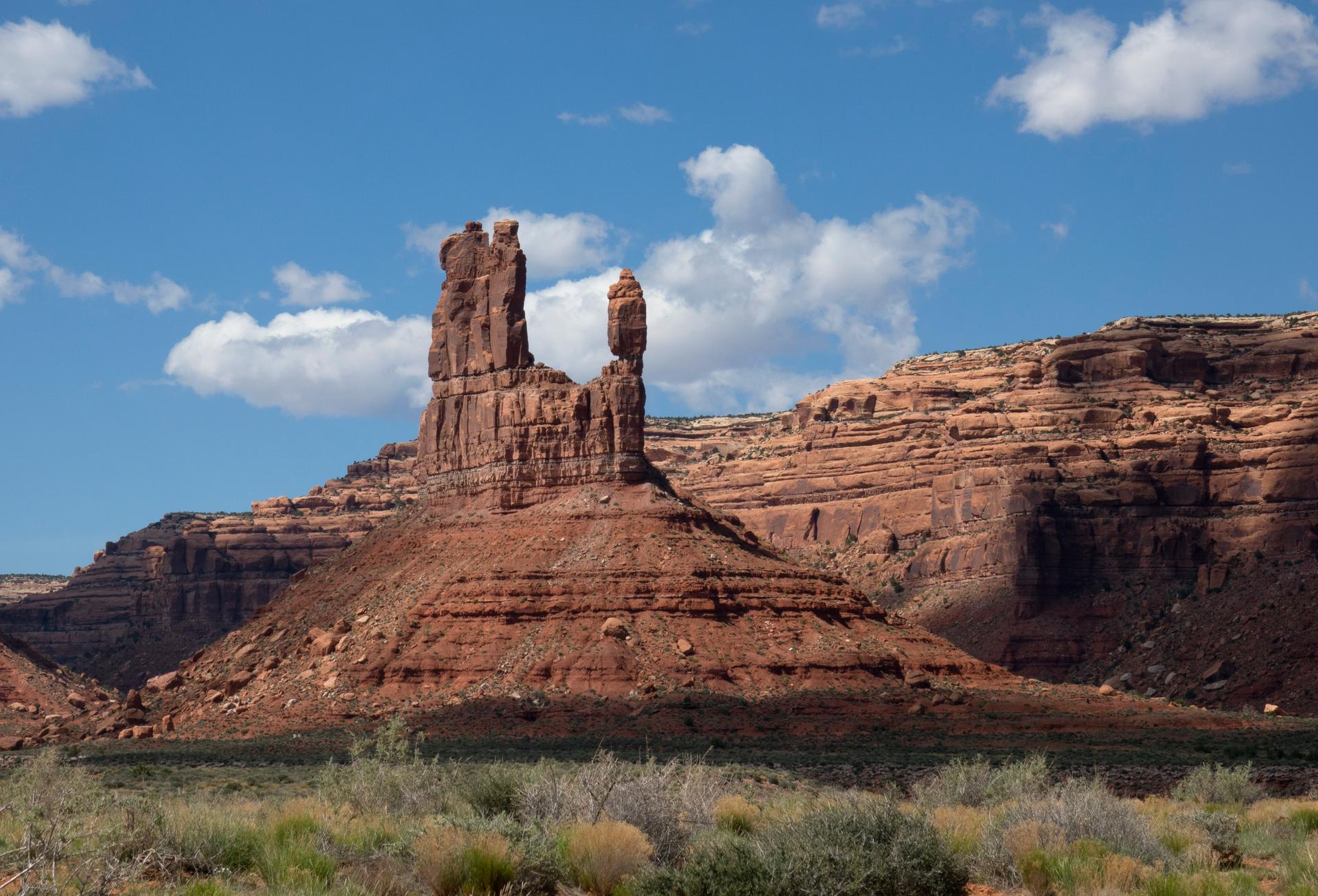He can make national monuments, but many legal scholars say Trump can’t destroy them
The Valley of the Gods in Bears Ears National Monumentin May, 2017. The Trump administration wants to shrink the size of this and other monuments, but legal scholars say the president might not have the authority to do so.
President Donald Trump has ordered the Interior Department to radically shrink two national monuments in Utah — Bears Ears and Grand Staircase-Escalante — but many legal scholars argue he is overstepping his powers.
More than a hundred US monuments safeguard landscapes and key Native American and historic sites, from the Statue of Liberty to the giant sequoias to Misty Fjords in Alaska — even parts of the Grand Canyon. Legal scholars largely agree that, while the president has the authority under the Antiquities Act to create national monuments, only Congress can alter or undo that designation.
Jamie Williams, president of the Wilderness Society, which has gone to court to try to block the president’s move, says that if Trump is allowed to take this action against the Utah monuments, no monument or national park will be safe in the future.
“Make no mistake: The president has declared open season on the places Americans love by opening them up for mining, drilling, logging and developing in other ways that would destroy the natural and cultural heritage,” Williams says. “This action is the largest rollback of land protection in the history of the United States and it ignores the millions of Americans who stepped up and were vocal about the need to protect these places.”
The Interior Department held a 60-day public comment period during their review of these national monuments and received close to three million comments.
“More than 98 percent of those comments said not only should these places be protected and left as they are, but we should protect more national monuments in this country,” Williams says. “What the Trump administration has done is reflective of a much larger agenda … to sell our public lands to the highest bidder for short-term gain.”
Following a four-month review of more than two dozen national monuments, Secretary of the Interior Ryan Zinke submitted confidential recommendations to the Trump administration in August, 2017. A leaked report reveals that Zinke proposes to shrink a number of monuments and open some of them to extractive industries like mining, grazing and fishing.
Williams says Trump’s decision is also a “huge step back for Native American rights and their sovereignty and their desire to protect lands that are sacred to them.”
“What was so inspiring about the creation of Bears Ears National Monument a year ago is that it came at the request of five tribes — the Navajo, the Hopi, Zuni, Ute and Ute Mountain Utes — that had asked for the protection of their ancestral lands and a nation-to-nation dialogue,” Williams says. “Not only did they get the designation, but they also got an agreement to have a seat at the table and collaborative management of these lands. That designation was really a beacon of hope for all Native peoples across the country.”
The recent actions in Utah would open up large areas for coal mining, oil and gas drilling and road development, and make sacred sites within the boundaries more vulnerable to increased looting and desecration, Williams says.
Bears Ears, for example, has the richest density of sacred sites and cultural archaeological sites in the country, including 1,000-year-old rock art, masonry cliff dwellings and sacred graves from Pueblan cultures. “They’re really beloved throughout the country and the world, as evidenced by the millions of visitors who come to see them every year,” he says.
To Williams, Trump’s move signals that “there's not an important wild or cultural place in this country that's not at risk from this administration."
“This country has defined itself on its ability to thrive economically while preserving places that are so important to who we are as a country,” he says. “To walk away from that in such a dramatic manner as this administration is doing is really disturbing. I think it's just the beginning of the kind of attack we're going to see on wildlands across the whole country.”
This article is based on an interview that aired on PRI’s Living on Earth with Steve Curwood. Here's one more story from Living on Earth: Americans are proud of their national parks and are willing to pay more to preserve them.
